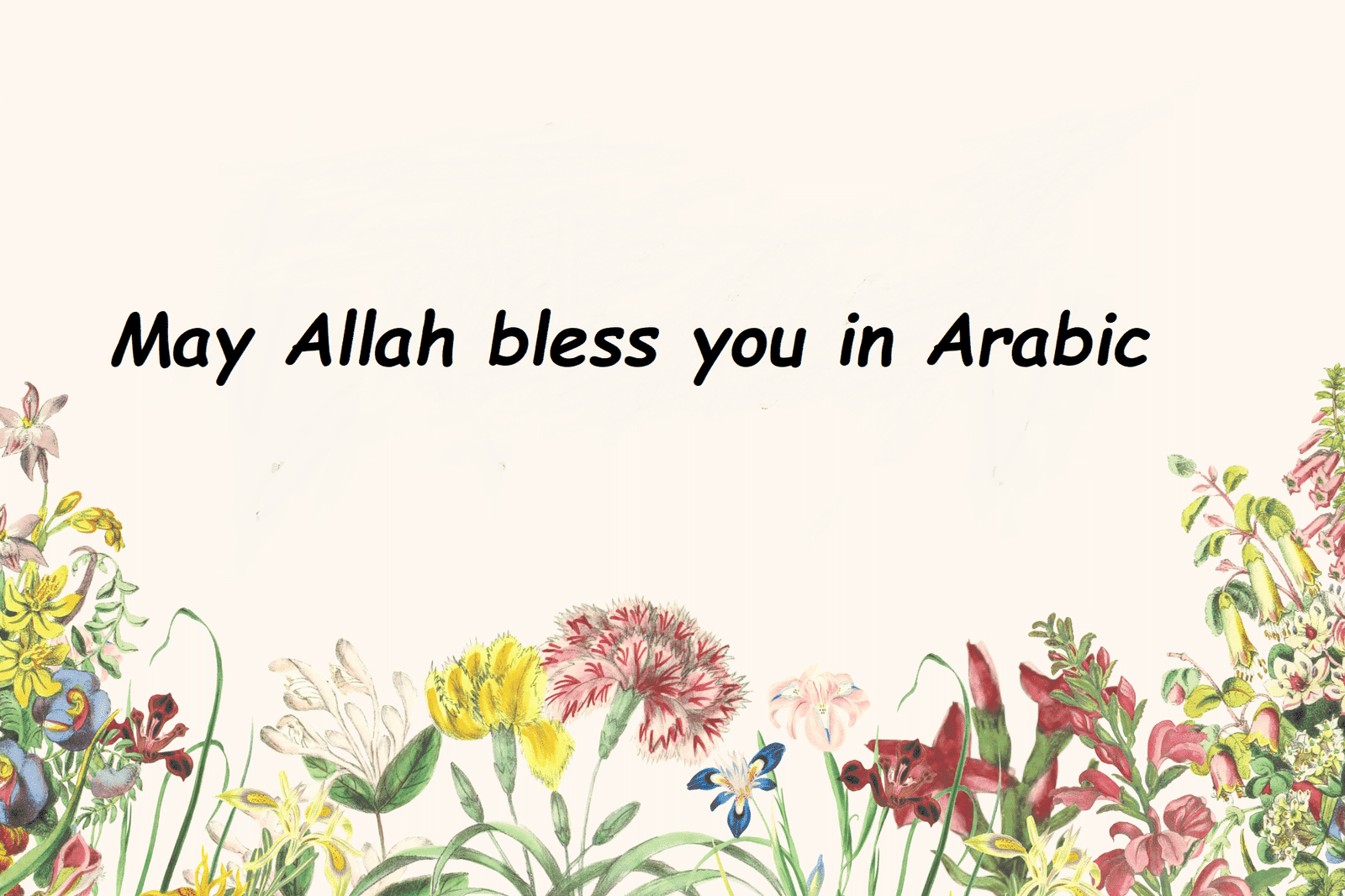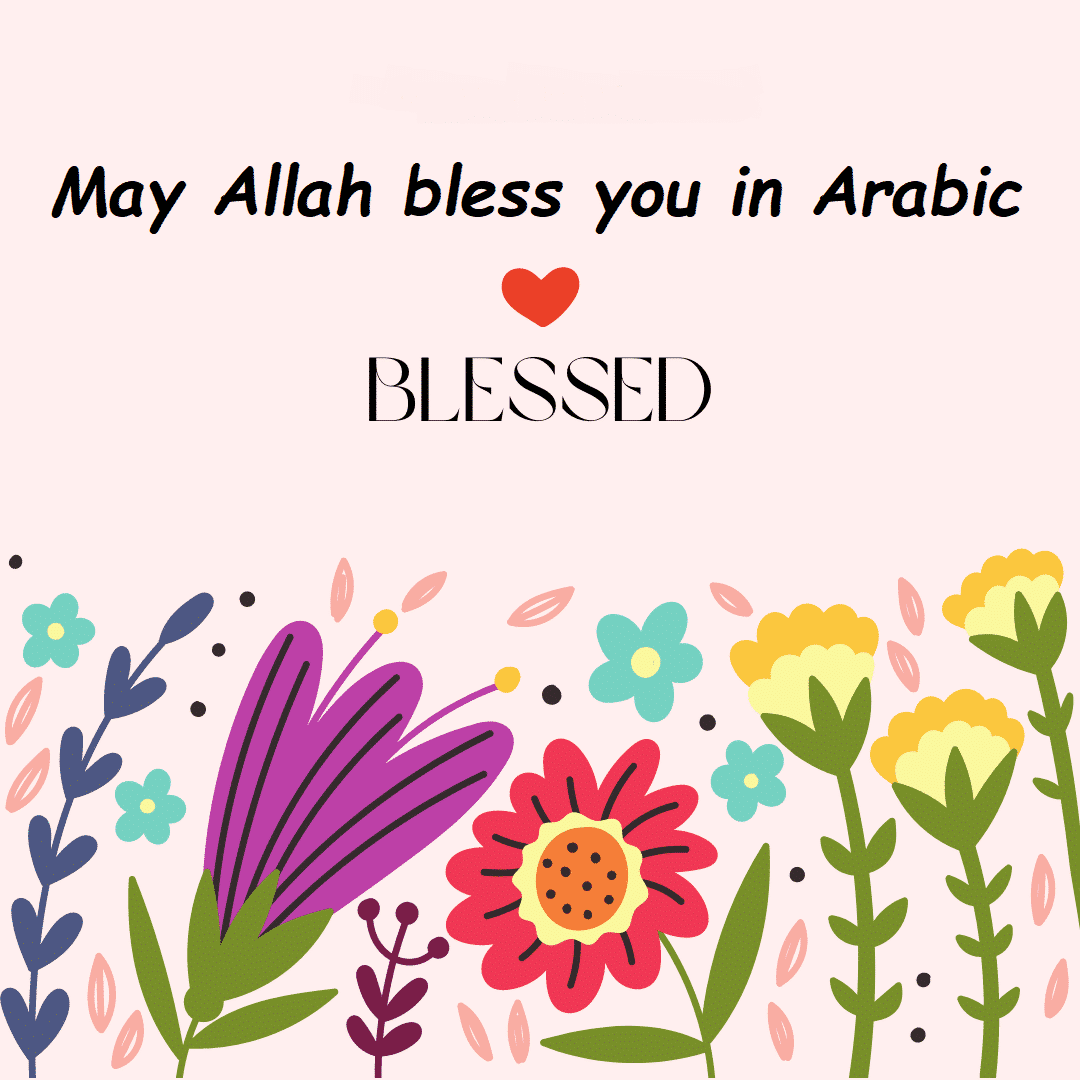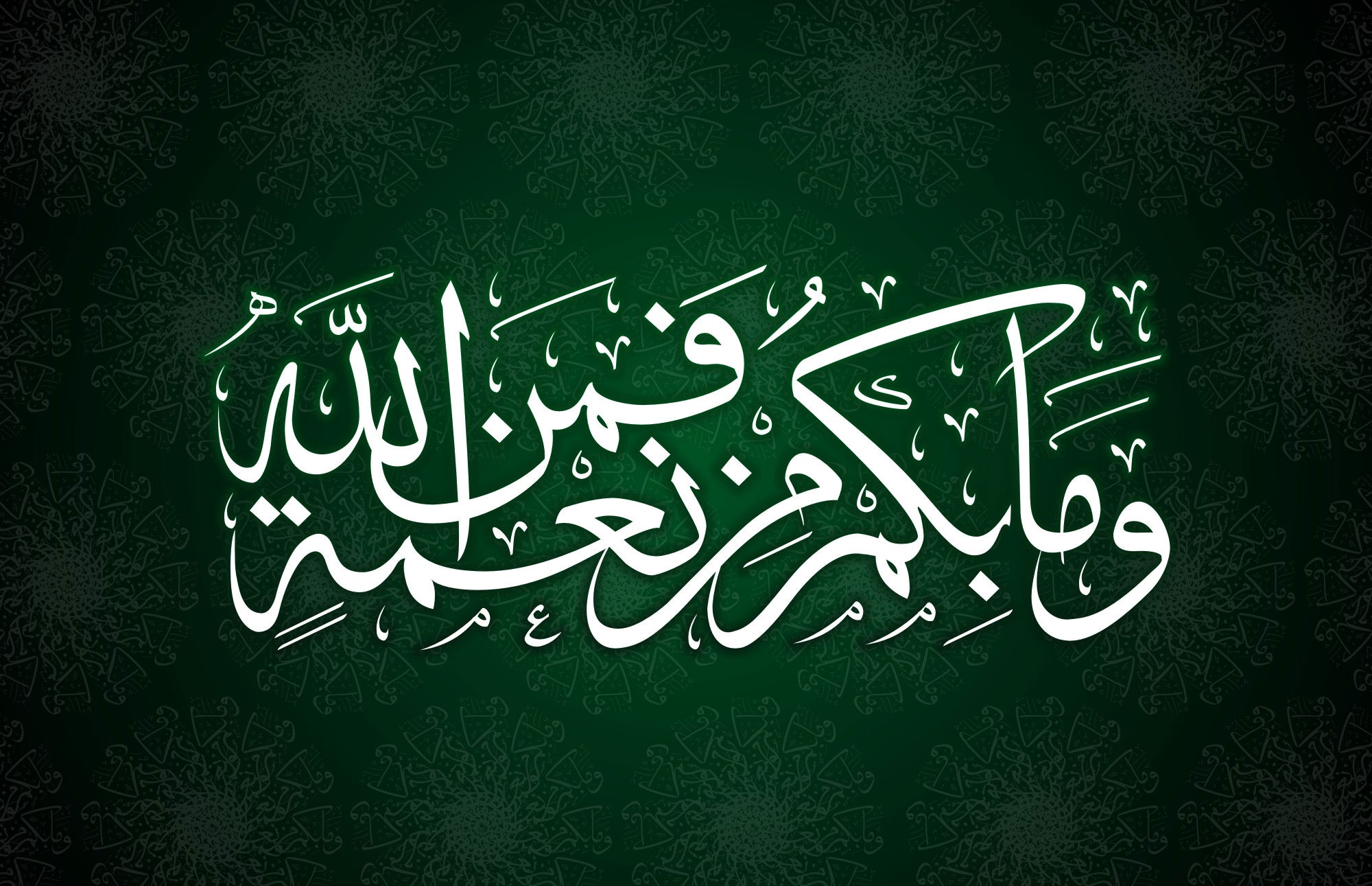God bless in arabic language – Embarking on a linguistic journey, we delve into the intriguing realm of “God bless” in Arabic language. This phrase, imbued with profound cultural and religious significance, holds a captivating place in the tapestry of Arabic-speaking communities.
Beyond its literal translation, “God bless” in Arabic carries a wealth of nuances and variations, each conveying a distinct shade of meaning and sentiment. From formal blessings to heartfelt well-wishes, this phrase weaves its way through countless interactions, shaping the social and cultural fabric of Arabic-speaking societies.
Meaning and Significance of “God Bless” in Arabic Language
In the Arabic language, “God bless” is translated as “Barak Allah feek” (بَارَكَ اللهُ فِيكَ). This phrase holds significant cultural and religious importance, as it expresses a wish for God’s blessings and favor upon someone.
In Islamic tradition, blessings are believed to come from God and are considered a sign of His mercy and grace. When someone says “Barak Allah feek” to another person, they are essentially asking God to bless that person with goodness, prosperity, and well-being.
Usage in Different Contexts, God bless in arabic language
The phrase “Barak Allah feek” is commonly used in various contexts and situations, including:
- As an expression of gratitude or appreciation for someone’s kindness, help, or hospitality.
- To offer well wishes or blessings to someone on a special occasion, such as a birthday, wedding, or graduation.
- To invoke God’s protection and guidance upon someone who is embarking on a new endeavor or facing a challenge.
Variations and Usage

In Arabic, there are several variations of “God bless,” each with its own subtle nuances and usage:
Formal Variations
- الله يبارك فيك(Allah yubārik fīk): This is the most formal and respectful variation, typically used in religious contexts or when addressing elders or people in positions of authority.
- الله يحفظك(Allah yaḥfaẓuk): Meaning “May God protect you,” this variation is commonly used in everyday conversation, particularly when expressing concern or well wishes.
Informal Variations
- الله يوفقك(Allah yuwaffiqak): This variation means “May God grant you success” and is often used in informal settings to express support or encouragement.
- الله يعينك(Allah yaʿīnuk): Meaning “May God help you,” this variation is typically used to express sympathy or support in times of difficulty.
Nuances and Differences
While the general meaning of “God bless” remains consistent across variations, there are subtle differences in their usage:
- Formal variations are typically used in more serious or respectful situations, while informal variations are more commonly used in casual conversation.
- Some variations, such as “Allah yubārik fīk,” carry a connotation of blessing or divine favor, while others, like “Allah yaḥfaẓuk,” focus more on protection or safety.
- The choice of variation also depends on the context and relationship between the speaker and the person being addressed.
Cultural and Social Implications: God Bless In Arabic Language

The expression “God bless” in Arabic holds significant cultural and social implications, reflecting the values and beliefs deeply rooted in Arabic-speaking communities. It serves as a powerful expression of gratitude, support, and well-wishes, carrying both religious and social connotations.
Gratitude
In Arabic culture, expressing gratitude is considered a fundamental virtue. Using “God bless” conveys a sincere appreciation for someone’s actions, kindness, or presence. It acknowledges the divine role in bestowing blessings and conveys a sense of humility and gratitude towards the recipient.
Support
Beyond expressing gratitude, “God bless” is also used to offer support and encouragement in times of need. It serves as a comforting phrase, conveying a sense of divine protection and reassurance. When someone is facing challenges or difficulties, uttering “God bless” offers a message of hope and solidarity.
Well-Wishes
In Arabic-speaking communities, “God bless” is often used as a general expression of well-wishes. It is a way to convey positive intentions and blessings for someone’s future endeavors, health, or overall well-being. Whether it’s for a new journey, a special occasion, or simply a desire for someone’s happiness, “God bless” carries a heartfelt wish for divine favor and protection.
Historical and Literary Context
The phrase “God bless” has a rich history in the Arabic language, dating back to the pre-Islamic era. It was used as a form of blessing and prayer, and was often invoked in times of need or danger.
In classical Arabic literature, the phrase is frequently found in poetry and prose. For example, in the pre-Islamic poem “Mu’allaqat al-Su’luk” by Imru al-Qays, the poet invokes God’s blessing upon his tribe:
فأقسم بالبيت العتيق وبالصفا- وبالله رب البيت أن لا أزورا
“I swear by the ancient house, by al-Safa, – And by God, the Lord of the House, that I will not visit [my tribe].”
The phrase has also been used to convey blessings and prayers in religious contexts. In the Quran, for example, the phrase is used in the following verse:
فَسَلَّمُوا عَلَيَّ وَسَلَّمْتُ عَلَيْكُمْ ۖ تَبَارَكَ اللَّهُ رَبُّ الْعَالَمِينَ
“So give me peace, and I will give you peace. Blessed be Allah, Lord of the worlds!” (Quran 10:10)
Throughout history, the phrase “God bless” has been used in a variety of contexts to convey blessings, prayers, and well wishes.
Comparative Analysis with Other Languages

The phrase “God bless” is a common expression of well-wishing found in many languages. In Arabic, the equivalent phrase is “بارك الله فيك” (barak Allahu feek), which carries similar connotations of divine favor and protection. However, there are also some notable similarities and differences in the usage and cultural significance of this phrase across different languages.
Similarities
One of the key similarities is the universal desire for divine protection and blessing. In many cultures, people believe that invoking God’s favor can bring good fortune, health, and happiness. This is reflected in the common usage of “God bless” as a well-wishing expression, often used in greetings, farewells, or when expressing gratitude.
Differences
Despite these similarities, there are also some cultural and linguistic differences in the usage of “God bless.” In Arabic, the phrase “بارك الله فيك” is often used in a more formal and respectful context compared to its English counterpart. It is commonly used to express gratitude for a favor or to wish someone well on a special occasion.
Additionally, the Arabic phrase is often accompanied by a specific gesture, such as raising the right hand and placing it on the chest, which adds to its significance and solemnity.
Cultural Significance
The cultural significance of “God bless” varies depending on the language and context. In Arabic-speaking cultures, the phrase is deeply rooted in Islamic tradition and is often used to invoke divine blessings upon others. It is also considered a sign of respect and gratitude, and is often used in social interactions to convey well wishes and good intentions.
Conclusion
The comparative analysis of “God bless” in Arabic to similar phrases in other languages reveals both similarities and differences in meaning, context, and cultural significance. While the universal desire for divine protection and blessing is shared across cultures, the specific usage and cultural implications of this phrase can vary significantly depending on the language and cultural context.
These comparisons shed light on the unique aspects of Arabic language and culture and provide a deeper understanding of the role of religion and spirituality in different societies.
Final Review
In conclusion, “God bless” in Arabic language stands as a testament to the rich tapestry of Arabic culture and the enduring power of language to express our deepest hopes, prayers, and blessings. Its multifaceted nature, rooted in history and tradition, continues to resonate deeply within Arabic-speaking communities, serving as a constant reminder of the divine presence in our lives.
Helpful Answers
What is the literal translation of “God bless” in Arabic?
The literal translation of “God bless” in Arabic is “Barak Allahu fik.”
How is “God bless” used in different contexts?
“God bless” in Arabic can be used in a variety of contexts, from formal blessings to informal expressions of gratitude and well-wishes.
What are the cultural implications of using “God bless” in Arabic?
Using “God bless” in Arabic reflects the deep religious and cultural values of Arabic-speaking communities, where blessings are seen as a powerful way to invoke divine favor and protection.